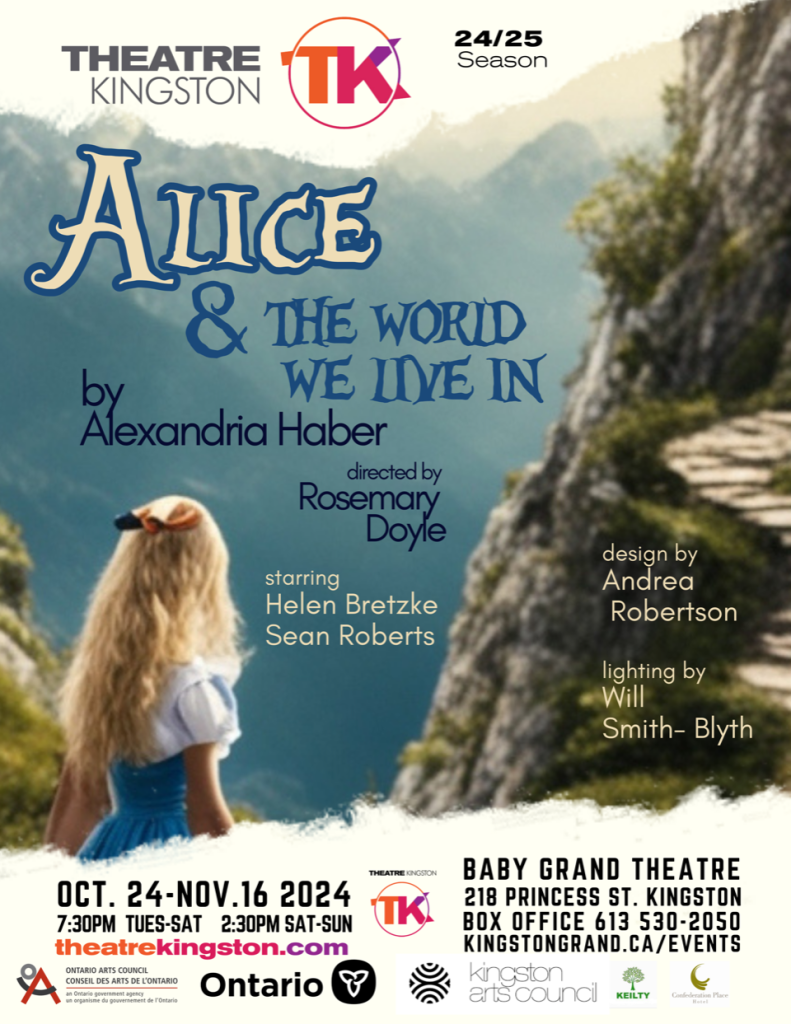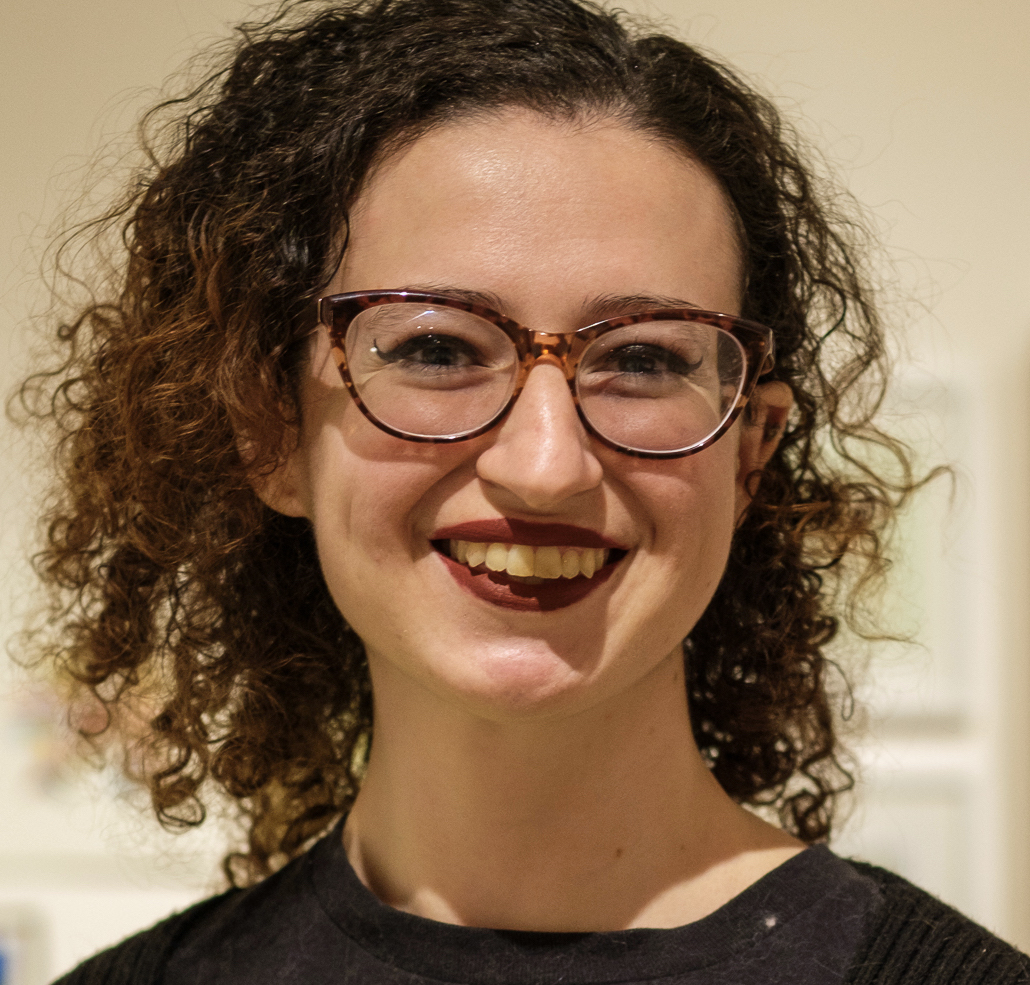Far from Wonderland, ‘Alice & the World We Live In’ Bumps Up Against Reality

Rather than tumbling into a fantastical wonderland, this Alice fights against reality as she struggles with the unexpected loss of her husband, Ever. Aside from the shared name, Alice & the World We Live In has no relation to Lewis Carroll’s famous character. Written by Alexandria Haber and directed by Rosemary Doyle, this powerful two-person show stars Helen Bretzke as Alice and Sean Roberts as Ever. He appears to Alice while she is taking their planned anniversary trip to Italy and attempting to climb a mountain solo—something she is quite reluctant to do as it was his idea in the first place and she was of course expecting them to do it together. Haber’s script really shines here, as the rapid dialogue alternates expertly between hilarious quips and deep explorations of love and loss.
The play moves between past and present (although Alice is ostensibly by herself on the mountain), often blurring the two, aided by the fact that Ever’s appearance, while pervasive throughout the performance, is also transient and uncertain—why he has appeared before Alice and how they can converse is never explained. Ever comes and goes, and although he is frequently onstage, he also disappears occasionally and is sometimes heard only as a disembodied voice interacting with Alice. They often repeat dialogue from their first meeting in a literature class, although this pattern is sometimes disrupted as their dynamic changes or as Alice tries to alter her memories in an attempt to prevent his death (which occurs just before the events of the play, and is revealed early on as Alice works through her grief). The rapport between the two actors is undeniable, as they expertly convey a blossoming romance from their first meeting, as a well-established and sometimes fraught relationship, and as a couple separated by tragedy.
The setting parallels Alice’s inward journey, as she is stuck at the peak of the mountain, and afraid of moving forward to descend, preferring to go back the way she came. Similarly, she struggles to move forward after Ever’s loss, and would prefer to change the past so that they never fell in love rather than suffer such pain. Ever’s apparition guides her through this journey as she struggles in the present and relives (sometimes trying to rewrite) their past together.
The mountain countryside set, designed by Rosemary Doyle, is well-envisioned and allows for plenty of movement, especially between different levels. These layers allow Alice and Ever to interact with each other in a variety of ways, mixing up the performance from solely static dialogue. Bretzke and Roberts use the stage well, with the direction maximizing the use of the set.
Alice occasionally uses props to support her backpacking journey, while she and Ever also make use of a small rolling grocery basket to indicate scenes in a grocery store, leading up to the incident where Ever was killed. These simple pieces are very effective in indicating place and differentiating between different settings and timelines, although the dialogue blurs these distinctions to reflect the fluidity of memory that the characters are meditating on. The lighting by Will Smith-Blyth is quite complex, changing to reflect the sunny Italian countryside, the harsh lighting of a grocery store, or spotlights to indicate a particular mood or emotion.
As its title suggests, the play explores the idea of “the world we live in” as one in which nonsensical violence happens everywhere, every day—which is true, although perhaps not something unique to our present moment as the play seems to suggest. The details around the terrorist attack in which Ever is killed remain ambiguous, which is a strength in the sense that it could apply more generally to a wide array of people, and it doesn’t take any particular political stance.
Although the ending felt somewhat abrupt, it is not ill-suited to the performance and is in many ways apt for the premise. Moreover, the play deftly delves into difficult and complex questions around love and loss that can hardly be contained within ninety minutes. The show manages to meditate astutely on these philosophical queries, grounding them in reality and reflecting both the highs and lows of being in a loving relationship. Not for fans seeking a retelling of Alice’s Adventures in Wonderland, but a performance not to be missed for romantics and skeptics alike.
‘Alice & the World We Live In’ is presented by Theatre Kingston and plays at the Grand Theatre until November 16, 2024. For more information and tickets, click here.
Please note this review was updated on November 2, 2024 to reflect a change in set designer.
